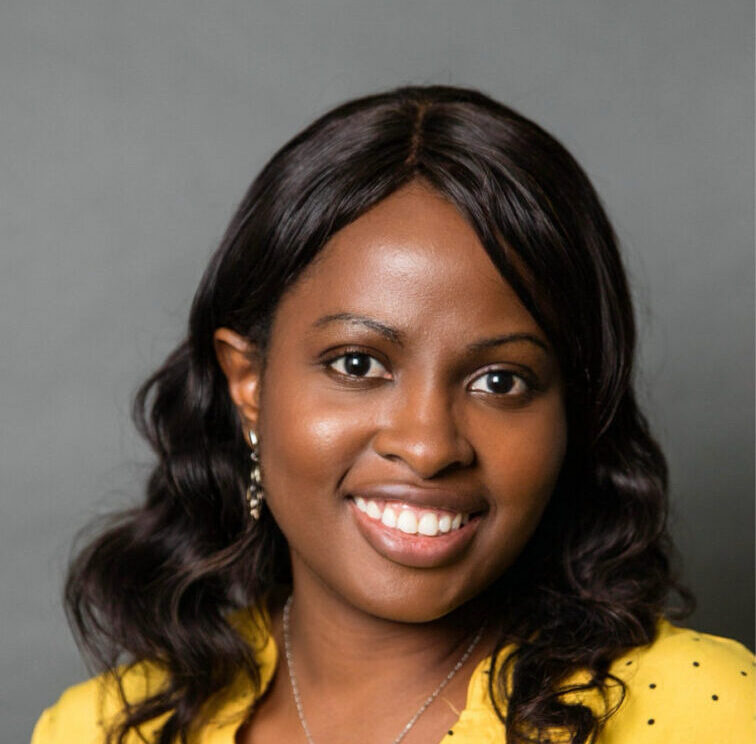Jola Ajibade
Associate Professor • Environmental Sciences • Emory University
Human and environmental geographer dedicated to transformational solutions for our planet’s future.


Jola Ajibade
Associate Professor • Environmental Sciences • Energy University
Environmental geographer and climate justice researcher dedicated to transformational solutions for our planet’s future.
Bio
Associate Professor • Environmental Sciences • Emory University
I am an environmental and human geographer. I apply environmental justice and political ecology lenses to study the intersection of climate change, urban sustainability, and societal transformation. My research focuses on how individuals, communities, and cities respond to global environmental change, and their different capacities for adaptation, resilience, transformation, and long-term sustainability. Specifically, I explore the impacts of uncritical climate solutions, resilience planning, and sustainability practices on marginalized communities, including Blacks, Indigenous, Latinx, and low-income groups. This includes examining unjust disaster risk reduction strategies, managed retreat programs, water-consolidation schemes, tree-planting, blue-green infrastructure, renewable energy, and future city planning. I interrogate when, where, how, and why some of these solutions foster uneven development, promote gentrification, and increase social inequality, thereby exacerbating vulnerability in already underserved and disadvantaged communities. I also examine social, economic, and political contexts as well as policies, community engagements, and institutional arrangements that allow just forms of adaptation and resilience to thrive. My scholarships and engagements are at the intersections of multiple scales: communities, cities, regions, and international levels.
In my work, I emphasize incorporating feminist, decolonial, and antiracist approaches and care ethics that can lead to more just, livable, and sustainable futures. I also advocate for justice-centered transformative ideologies that allow for articulating multiple and alternative trajectories of future socio-environmental and socio-economic possibilities, i.e., human-to-human and human-to-nature assemblages. This includes exploring unconventional approaches and partnerships, such as the role of grassroots coalitions, cooperatives, social entrepreneurs, and small businesses in promoting a shareable economy, sustainable lifestyle changes, low-carbon development, and socially just resilience planning in cities.
Research interests
- Climate adaptation and urban resilience
- Environmental justice and disaster geographies
- Climate justice and societal transformation
- Managed retreat and climate migration
- Climatopias and smart cities
- Tree equity and eco-gentrification
- Renewable energy and just transition
- Water justice and feminist geographies
- Mixed qualitative and quantitative methods
Research Interest
Climate adaptation and urban resilience
Environmental justice and disaster geographies
Climate justice and societal transformation
Managed retreat and climate migration
Cimatopias and smart cities
Tree equity and eco-gentrification
Renewable energy and just transitions
Water justice and feminist geographies
Mixed qualitative and quantitative methods
Education
Ph.D. Geography and Environmental Sustainability (2013) Western University Canada
M.A. International Law and Human Rights, (2006) University for Peace, Costa Rica
B.A. Philosophy (2004) Obafemi Awolowo University, Nigeria
Professional Courses and Certifications
Certificate in Climate Change and Fragile States: Rethinking Adaptation (2011). United Nations University-Institute for Environment and Human Security (UNU-EHS), Germany.
Certificate in Climate Change and Its Impacts (2010), University of Brown International Advanced Research Institute, Rhode Island, USA.
Certificate in Universal and Regional Systems of Human Rights Protection (2006). Notre Dame Law School and Institute for Human Rights Research, Netherlands.
Diploma in International Cooperation and Development (2005), United Nations University, Tokyo, Japan.
Diploma in Human Rights Concepts and Issues (2005), United Nations University, Tokyo, Japan.
Contact Us
Emory University Department of Environmental Sciences Mathematics and Science Center, E524 400 Dowman Dr., Atlanta, GA 30322
- +1 404-544-1497
- Mon-Fri 10am-5pm
- emory.climtransformlab@gmail.com
© 2025 climtransformlab. | Powered by femstudio
- Home
- About us
- Research Projects
- Global Adaptation Mapping Initiative
- Managed Retreat
- Transformation in “Sustainable Cities”
- Transformation in Urban Settlements
- Theorizing Transformation in the Anthropocene
- Cascading Disasters and Resilience Planning
- Waterfront Future Cities and Climatopias
- Tree Equity, Environmental Justice and Community Resilience
- Teaching
- Outreach
- Achievements
- Contact
Sciences Mathematics and Science Center
E524 400 Dowman Dr.,
Atlanta,
GA 30322